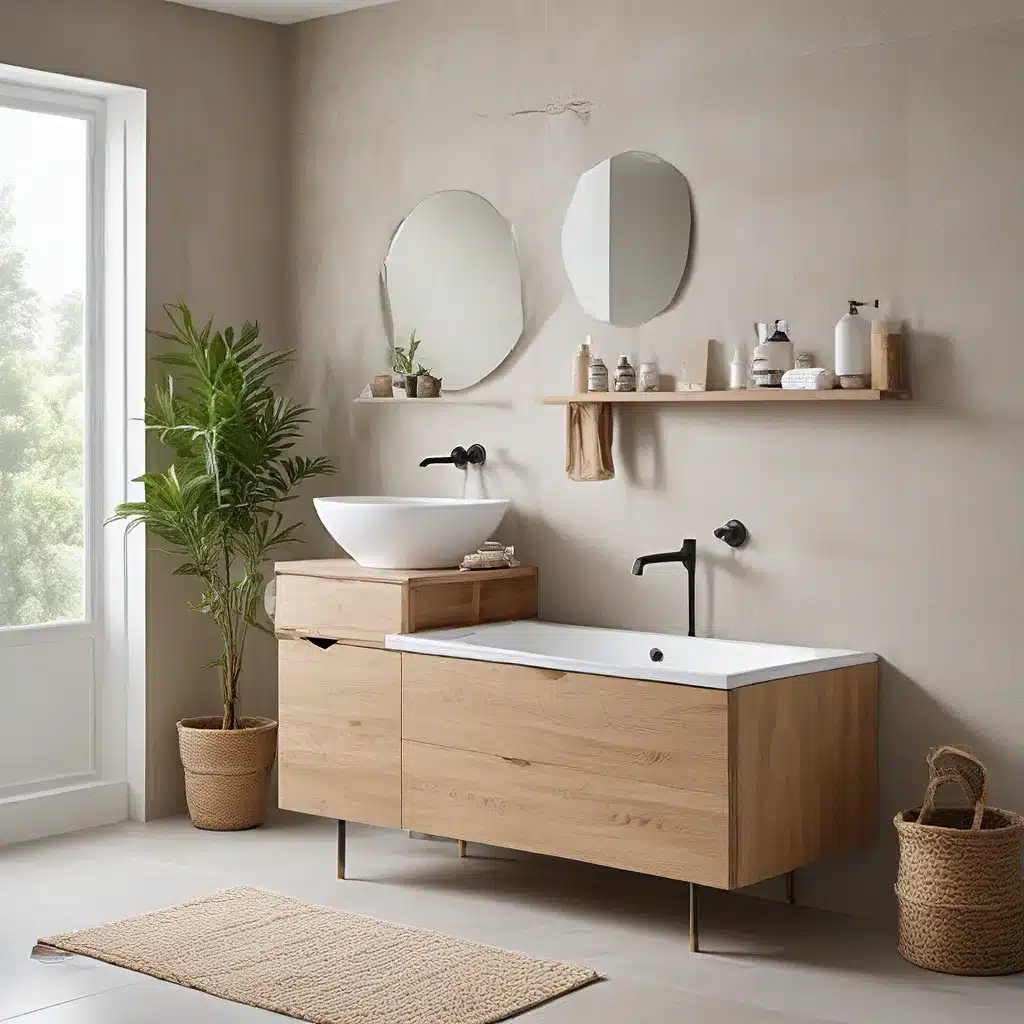
Exploring the Rise of Eco-Conscious Washbasin Design
As the world becomes increasingly conscious of its environmental impact, the demand for sustainable and eco-friendly home solutions has never been higher. This trend extends to the often-overlooked realm of bathroom fixtures, where a growing number of homeowners, designers, and contractors are seeking out innovative materials and practices to create washbasins and sinks that are not only beautiful and functional but also gentle on the planet.
Driven by a desire to reduce our carbon footprint and create healthier living spaces, the eco-friendly movement has gained significant momentum in the bathroom design industry. Homeowners are now more discerning than ever, prioritizing products that not only enhance the aesthetic of their bathrooms but also align with their values of sustainability and environmental responsibility.
Eco-Friendly Washbasin Materials
At the forefront of this transformation are the diverse range of sustainable materials now available for washbasins and sinks. Gone are the days when the choices were limited to traditional options like porcelain or stainless steel. Today, homeowners and designers can explore a vast array of eco-friendly alternatives that offer both aesthetic appeal and long-term environmental benefits.
Bamboo has emerged as a popular choice, prized for its rapid growth, renewable nature, and inherent durability. This versatile material not only lends a warm, natural aesthetic to bathroom spaces but also helps to reduce deforestation, a pressing global concern. Bamboo washbasins are becoming increasingly common, allowing homeowners to make a conscious choice in favor of a more sustainable future.
Another material gaining traction is recycled glass, which repurposes discarded glass items into unique and visually striking washbasin designs. By giving new life to waste, recycled glass sinks not only reduce landfill contributions but also offer a distinctive and eco-friendly aesthetic that can elevate any bathroom interior.
Soapstone, a natural stone material renowned for its exceptional durability and resistance to stains and scratches, is also emerging as a popular sustainable choice. This dense, non-porous material requires minimal maintenance, making it an attractive option for those seeking long-lasting, low-impact bathroom fixtures.
In addition to these natural and recycled materials, innovative eco-friendly composite options, such as those made from recycled paper or agricultural waste, are also gaining traction. These innovative solutions not only reduce waste but also offer unique textures and visual appeal that can seamlessly integrate into modern or sustainable bathroom designs.
Embracing Eco-Friendly Washbasin Installation and Maintenance
Selecting eco-friendly materials is only the first step in creating a truly sustainable bathroom. Homeowners and contractors must also consider the installation and maintenance processes to ensure the long-term environmental impact of their washbasin choices.
Low-VOC or formaldehyde-free adhesives and sealants play a crucial role in promoting indoor air quality and reducing toxic emissions. By opting for these eco-friendly alternatives, homeowners can create healthier living spaces while still achieving a secure and durable installation.
Proper maintenance is also key to the longevity and sustainability of washbasins. Eco-friendly cleaning products, free from harsh chemicals, can help preserve the integrity of sustainable materials while minimizing the release of pollutants into the environment. Homeowners should explore green cleaning solutions that utilize natural ingredients, such as plant-based surfactants or essential oils, to maintain the beauty and functionality of their washbasins without compromising the health of their families or the planet.
Designing for Longevity and Adaptability
In the pursuit of sustainability, it is essential to consider not just the materials used, but also the overall design and longevity of washbasins and sinks. Durable, adaptable designs that can withstand the test of time are crucial to reducing waste and minimizing the environmental impact of bathroom renovations.
Alternative joinery methods, such as dovetail joints, mortise and tenon joints, and dowel joints, offer sturdy and reliable connections without the need for toxic adhesives. These techniques not only enhance the durability of washbasin cabinetry and vanities but also contribute to a more sustainable approach to bathroom design.
Furthermore, modular and adaptable washbasin designs allow homeowners to easily update or reconfigure their bathroom spaces over time, without the need for extensive demolition or replacement. This approach aligns with the principles of circular economy, where products are designed to be repaired, repurposed, or recycled, rather than discarded.
Integrating Sustainable Bathroom Systems
Beyond the washbasin itself, homeowners and designers can further enhance the sustainability of their bathroom spaces by incorporating eco-friendly plumbing and water management systems.
Low-flow toilets and showerheads play a crucial role in reducing water consumption, thereby lessening the strain on local water sources and minimizing the energy required for water heating. These water-saving fixtures not only contribute to a more sustainable household but also help to lower utility bills, making them a financially prudent choice as well.
Greywater recycling systems offer an innovative approach to water management, enabling the reuse of wastewater from sinks, showers, and washing machines for landscape irrigation. By repurposing this “greywater,” homeowners can reduce their freshwater demand, support thriving outdoor ecosystems, and promote a more holistic sustainable approach to bathroom design.
Embracing the Future of Eco-Friendly Bathroom Fixtures
As the demand for sustainable living continues to grow, the bathroom design industry is responding with a wealth of innovative, eco-friendly solutions. From bamboo and recycled glass washbasins to modular and adaptable designs, homeowners now have an abundance of options to create bathrooms that not only enhance their living spaces but also contribute to a healthier, more sustainable future.
By prioritizing eco-friendly materials, installation practices, and integrated systems, homeowners can transform their bathrooms into havens of sustainability, reducing their environmental impact while enjoying the beauty and functionality of their cherished fixtures. As the industry continues to evolve, the future of bathroom design is undoubtedly green, offering endless possibilities for those who seek to live in harmony with the planet.
Explore the sustainable offerings from Washbasin Factory and discover how you can incorporate eco-friendly solutions into your next bathroom project, ensuring a beautiful and sustainable living space for years to come.